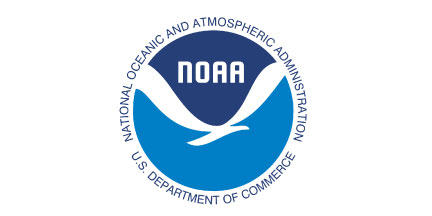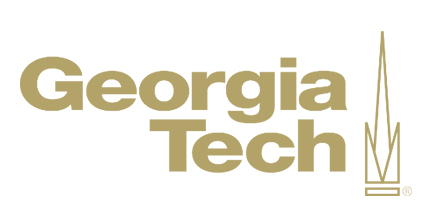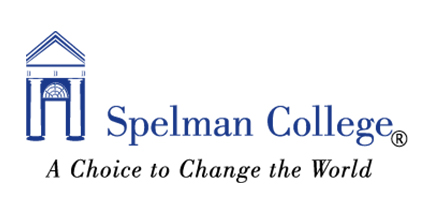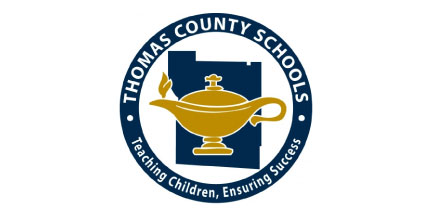Extreme heat is the leading cause of weather-related deaths in the United States disproportionately affecting the most vulnerable community members. Hear from Dr. Na'Taki Osborne Jelks of Spelman College and Dr. Kim Cobb of Georgia Tech about their work with UrbanHeatATL to map urban heat islands in Atlanta and how their research is affecting change in the city. Frank Niepold of NOAA also shares his expertise on climate science and how teachers can effectively teach climate science topics in schools.
Then, Thomas County Schools in southern Georgia shares how they are replicating the work of UrbanHeatATL in their own district. Find out how students are learning key science concepts connected directly to environmental justice priorities while participating in this nationwide study and how you can take part in your own community.
Dr. Kim Cobb UrbanHeatATL Co-Lead | UrbanHeatATL, Georgia Power Chair & Director | Global Change Program, ADVANCE Full Professor | Georgia Tech College of Sciences
Kim Cobb is the Georgia Power Chair and Professor in the School of Earth and Atmospheric Sciences at Georgia Tech. She is the Director of the Global Change Program at Georgia Tech, and serves as the ADVANCE Professor for diversity, equity, and inclusion for the College of Sciences. In her climate research, she uses observations of past and present climate to advance our understanding of future climate change impacts, with a focus on climate extremes and coastal flood hazards. She received her B.A. from Yale University in 1996, and her Ph.D. in Oceanography from the Scripps Institute of Oceanography in 2002. In her research, Kim has sailed on oceanographic cruises and led caving expeditions in the Borneo rainforests. She received a NSF CAREER Award, a Presidential Early Career Award for Scientists and Engineers, and the Hans Oeschger Medal from the European Geosciences Union in 2019. She is a Lead Author for the IPCC Sixth Assessment Report, due out in 2021. As a mother to four, Kim is a strong advocate for women in science, and champions diversity and inclusion in all that she does. She is also devoted to the communication of climate change to the public through media appearances, public speaking, and social media channels, and enjoys frequent exchanges with policymakers about climate impacts and solutions.
Dr. Na'Taki Osborne Jelks Assistant Professor, Environmental and Health Sciences | UrbanHeatATL
Dr. Na’Taki Osborne Jelks is an Assistant Professor in the Environmental and Health Sciences Program at Spelman College in Atlanta, GA. She develops, implements, and evaluates community-based initiatives that set conditions to enable low-income and communities of color to empower themselves to reduce exposure to environmental health hazards and improve health and quality of life. Jelks is particularly interested in participatory science approaches that engage environmentally overburdened communities in monitoring local environmental conditions, generating actionable data for community change, and developing effective community-based interventions that revitalize toxic, degraded spaces into healthy places.
Frank Niepold Climate Education Coordinator | NOAA
Frank Niepold is the Senior Climate Education Coordinator at NOAA's Climate Program Office (CPO) in Silver Spring Maryland, co-manage the NOAA CPO Communication, Education and Engagement Division, Climate.gov Education section lead, a co-chair of the U.S. Global Change Research Program's Education Interagency Working Group, the U.S. National Communications Report chapter lead on Education, Engagement, Training, and Workforce Development for the U.N. Framework Convention on Climate Change (UNFCCC), Action for Climate Empowerment National Focal Point for the United States, founding member of the CLEAN Network and co-chair of the CLEAN Network Leadership Board, a member of the Federal Steering Committee for the Fourth National Climate Assessment (NCA4) and federal lead for the White House Climate Education and Literacy Initiative (2013-2016).
Dr. Scott Sweeting K-12 Science Curriculum and Instructional Coordinator | Thomas County Schools
Scott is the Coordinator for K-12 Science Curriculum and Instruction at Thomas County Schools. He has been at Thomas County Schools for over 21 years and worked as a high school science teacher for 16 years.
Richard Faucett High School Science Teacher | Thomas County Central High School
This is Richard's 15th year as a high school science teacher. He has taught Earth Systems and AP Environmental Science for the duration of his career. He earned his Environmental Geoscience degree from Valdosta State University and spent two years in private environmental work before entering education.
Notes and Resources:
Urban Heat Island Lesson in PocketLab Notebook
Learn more about Urban Heat Island studies using PocketLab tools
NOAA UHI Campaign:
-
https://nihhis.cpo.noaa.gov/Urban-Heat-Islands/Mapping-Campaigns/Campaign-Cities
-
https://nihhis.cpo.noaa.gov/Urban-Heat-Islands/Mapping-Campaigns
-
https://nihhis.cpo.noaa.gov/Urban-Heat-Island-Mapping/UHI-Campaigns/Webinars
-
https://nihhis.cpo.noaa.gov/Urban-Heat-Islands/Understand-Urban-Heat-Islands
-
https://cleanet.org/clean/educational_resources/collection/index.html?search_text=urban+heat&q1=
Dr. Osborne-Jelks is also director of the West-Atlanta Watershed Alliance! https://www.wawa-online.org/
Access the ‘Ask a Scientist’ lesson with Dr. Kim Cobb in PocketLab Notebook - https://app.thepocketlab.com/lab-report/ugrgWWdD0001Rx0g?ro=1
Learn more and find out what you need to participate in this amazing project: https://www.thepocketlab.com/powered-by-pocketlab#urban-heat-feature




